
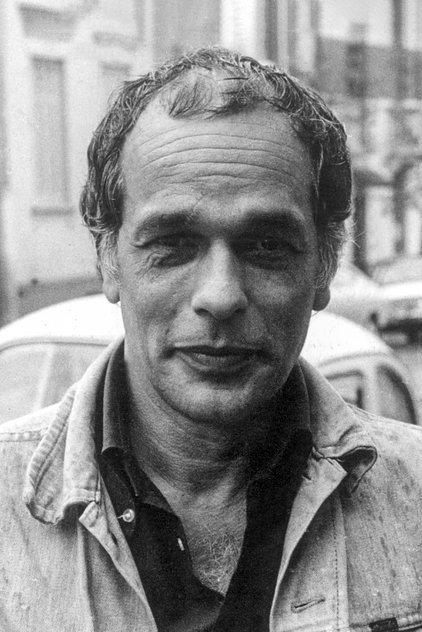
Nelson Pereira dos Santos
Born: October 22, 1928
Died: April 12, 2018
in São Paulo, Brazil
Died: April 12, 2018
in São Paulo, Brazil
Nelson Pereira dos Santos was a Brazilian film director. He directed films such as Vidas Secas (Barren Lives), based on the book with the same name by Brazilian writer Graciliano Ramos. He also directed Rio 40° (his first feature film) which was released in 1955. The film is a chronicle of life in the favelas of Rio de Janeiro, and it influenced several other directors, spurring the Cinema Novo moment. His most well-known film outside of Brazil is Como Era Gostoso o Meu Francês (How Tasty Was My Little Frenchman, 1971). It was entered into the 21st Berlin International Film Festival. The film takes place in the sixteenth century and details the alleged cannibalistic practices of the (now extinct) indigenous Tupinamba warrior tribe against the French and Portuguese colonizers of the Brazilian littoral. The film is something of a black comedy about European colonialism, one that makes satirical use of the Brazilian modernist trope of antropofagia (cultural cannibalism), then recently revived by the Tropicalismo movement of the 1960s, as well as a bitter commentary on the historical genocide of the indigenous tribes in Latin America and the gradual destruction of their civilization. Santos was a member of the Brazilian Academy of Letters from 2006 up to his death, result of multiple organ failure, on 12 April 2018.
Movies for Nelson Pereira dos Santos...

Title: Já que Ninguém me Tira Para Dançar
Character: Self
Released: October 28, 2021
Type: Movie
Conducted from interviews with personalities who lived with Leila Diniz (1945-1972), the documentary is a record of an era and, above all, it rescues the participation in Brazilian culture of the actress who opened the way for the sexual revolution during the dark years of the dictatorship.

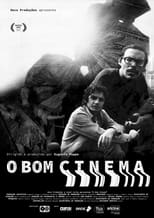
Title: The Good Cinema
Character: Self
Released: March 18, 2021
Type: Movie
An authentically marginal cinema created in Catholic university in Brazil. One of the most intriguing and imaginative moments in modern cinema in the voice of some of its select conspirators—with Carlos Reichenbach at the lead—, and through the most razing flow of images that can possibly be conceived.


Title: Memórias do Grupo Opinião
Character: Self (archive footage)
Released: May 15, 2019
Type: Movie
Follows the story of Opinião, a theatre group created in 1964 during the early Brazilian dictatorship period to oppose the government through artistic performances. Considered the first left-wing response to the dictatorship, the group gathered now famous Brazilian artists such as Nara Leão, Maria Bethânia, João do Vale and Millôr Fernandes.


Title: A música que meu pai gostava
Released: July 9, 2018
Type: Movie
Nelson Pereira dos Santos talks about The Highway of Life (1980)


Title: Brazilian Cinema in the 20th Century
Character: Self
Released: March 31, 2017
Type: Movie
Two years of research and visits to collections, cinematheques and museums; almost seventy interviews that generated 30 hours of recorded material; more than two hundred scanned photos and more than one hundred films watched. In total, more than a thousand hours of work were needed to prepare Brazilian Cinema in the 20th Century. The work is a fascinating journey through all the cinematic cycles that Brazil lived, from the pioneering Belle Époque, through the great studios like Atlântica and Cinédia, Cinema Novo, the urban comedies of the 70's, until the resumption in the late 90's. The documentary is unique, it gives the floor to who really wrote and lived this story intensely.


Title: Cinema Novo
Character: Self - Filmmaker (archive footage)
Released: May 16, 2016
Type: Movie
A deep investigation, in the way of a poetic essay, on one of the main Latin American movements in cinema, analyzed via the thoughts of its main authors, who invented, in the early 1960s, a new way of making movies in Brazil, with a political attitude, always near to people's problems, that combined art and revolution.

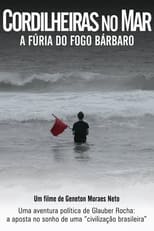
Title: Cordilheiras no Mar: A Fúria do Fogo Bárbaro
Character: Self
Released: October 5, 2015
Type: Movie


Title: Tudo Por Amor ao Cinema
Character: Self
Released: June 30, 2015
Type: Movie
A documentary on Cosme Alves Netto (1937-1996), former head of the Cinematheque of the Museum of Modern Arts at Rio de Janeiro.


Title: O Brasil de Darcy Ribeiro
Released: April 2, 2014
Type: Movie
Documentary on the view, testimonies and times of Darcy Ribeiro, since military dictatorship.


Title: Sinais de Cinza, A Peleja de Olney Contra o Dragão da Maldade
Released: January 22, 2013
Type: Movie


Title: Glauber Rocha em Defesa do Cinema Brasileiro
Character: Self (archive footage)
Released: August 22, 2011
Type: Movie

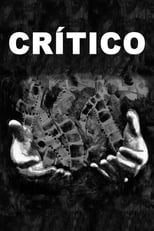
Title: Crítico
Character: Self
Released: January 22, 2008
Type: Movie
Seventy critics and filmmakers discuss cinema around the conflict between the artist and the observer, the creator and the critic. Between 1998 and 2007, Kléber Mendonça Filho recorded testimonies about this relationship in Brazil, the United States and Europe, based on his experience as a critic.

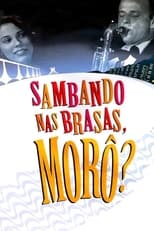
Title: Sambando nas Brasas, Morô?
Character: Self
Released: September 4, 2007
Type: Movie
The adventures of Pedro, a musician who is trying his luck in Rio de Janeiro, in the 1950's. He leaves his hometown Belo Horizonte to share a lodging with his brother Carlos in Rio. During one of his gigs, he meets Arlete, a singer in a vocal group and fall in love.


Title: Português - A Língua do Brasil
Released: January 2, 2007
Type: Movie
16 members from the Brazilian Academy of Letters share their views on the current situation of the portuguese language.




Title: Glauber Rocha - The Movie, Brazil's Labyrinth
Character: Self
Released: September 17, 2003
Type: Movie
Documentary about Brazilian filmmaker Glauber Rocha, one of the most important names in the Cinema Novo, with interviews with some of his friends and colleagues.


Title: At the Edge of the Earth
Character: Self
Released: July 7, 2002
Type: Movie
On 17 May 1931, the young director Mário Peixoto released his masterpiece "Limite" in a premiere in Capitólio Theater in Rio de Janeiro to astonished audiences bewildered by the impressive and poetic images. Considered by many viewers the best Brazilian movie ever made, this feature has never been released commercially. However, in a great paradox, Mário Peixoto has never made any other movie. The director Sérgio Machado pays a great tribute to the life and work Mário Peixoto a.k.a. Maçarico by his close friends with this documentary, using his diary; footages of "Limite", the never concluded "Onde a Terra Acaba" (1933) and the short "O Homem do Morcego" (1980); and interesting testimonies of Olga Breno, Ruy Solberg, Nelson Pereira dos Santos and Walter Salles among others.

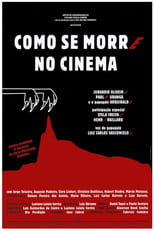
Title: How to Die in Cinema
Character: Himself
Released: March 7, 2002
Type: Movie
Memories of a parrot who participated in the filming of the classic Vidas Secas, in 1962, where it was featured along the puppy Baleia.


Title: For All - O Trampolim da Vitória
Released: May 15, 1998
Type: Movie
1943, World War II. The northeastern coast of Brazil is an strategic region for the Allies. Giancarlo, an Italian immigrant married to a Brazilian woman, lives nearby the Parnamirin Field, the largest military base built by the USA outside of their territory. In this new base, Brazilian recruits who speak English suddenly find themselves reaching privileged positions.


Title: Dib
Character: Self
Released: January 2, 1997
Type: Movie
Documentary that addresses, through the testimony of directors and actors, the work of Dib Lutfi, considered one of the greatest photographers of Brazilian cinema.

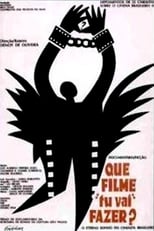




Title: Alex Viany - Um Documentário em Vídeo
Character: Self
Released: January 2, 1989
Type: Movie


Title: Brazil in Cannes
Released: December 24, 1971
Type: Movie
The importance of the Cannes Film Festival in world terms and what it represented for Brazil in 1971. For Brazilian cinema, Cannes 71 represented the transition from film to industrialized production. It is the meeting of producers, technicians, critics , celebrities in general, offering opportunities for greater knowledge and renewal of values




Title: Garden of War
Released: September 23, 1968
Type: Movie
Edson is having an affair with a left-wing aspiring movie director during Brazil's military dictatorship years. He tries to get some easy money for her film, but ends up being arrested and tortured as his torturers suspect he's involved in a plot to overthrow the military government.

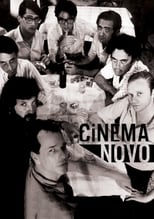
Title: Improvised and Purposeful: Cinema Novo
Character: Self
Released: January 1, 1967
Type: Movie
Originally produced for German TV, Improvised and Purposeful is a firsthand look at the "Cinema Novo" movement (otherwise known as the 'Brazilian New Wave'). Director Joaquim Pedro de Andrade focuses on six Cinema Novo filmmakers working in Rio in 1967.

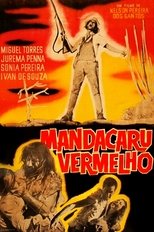
Title: Mandacaru Vermelho
Character: Augusto
Released: November 27, 1961
Type: Movie
Despite being promised to another man, a young orphaned woman falls in love with man working at the farm she lives in , and together they escape. According tradition in Northeast Brazil, her aunt goes after them, in order to kill them for revenge.
